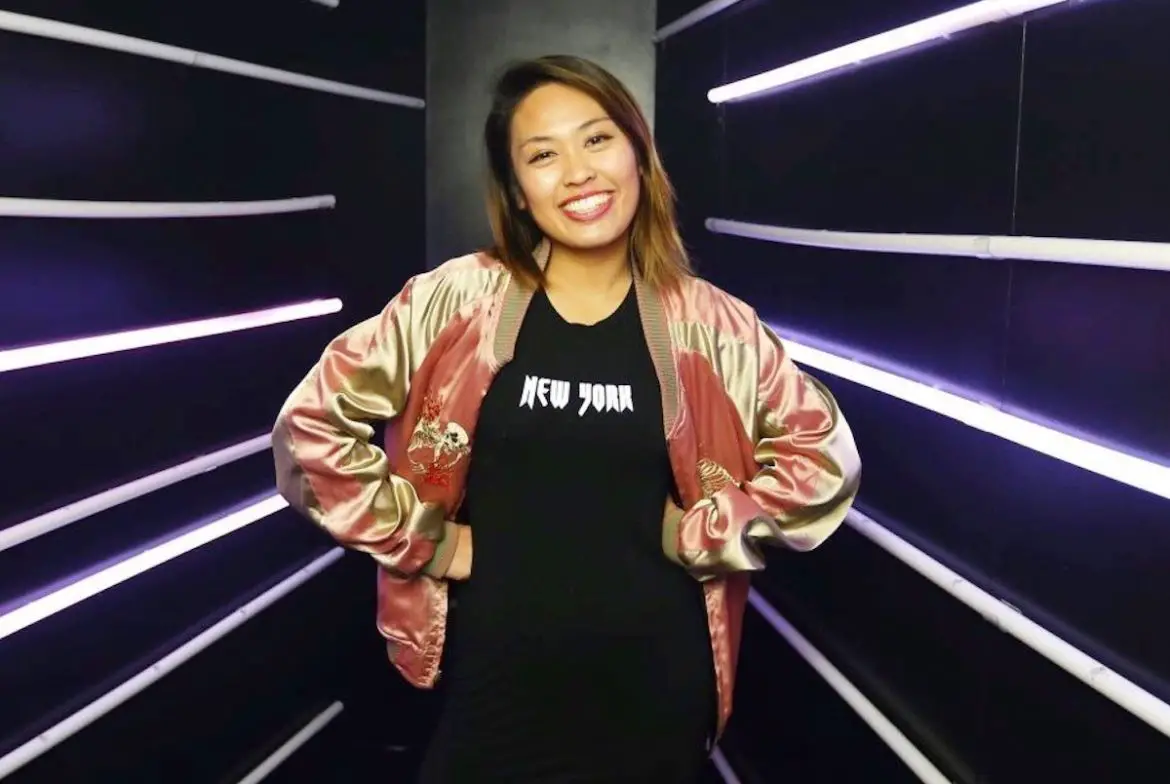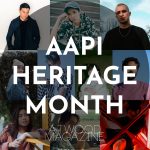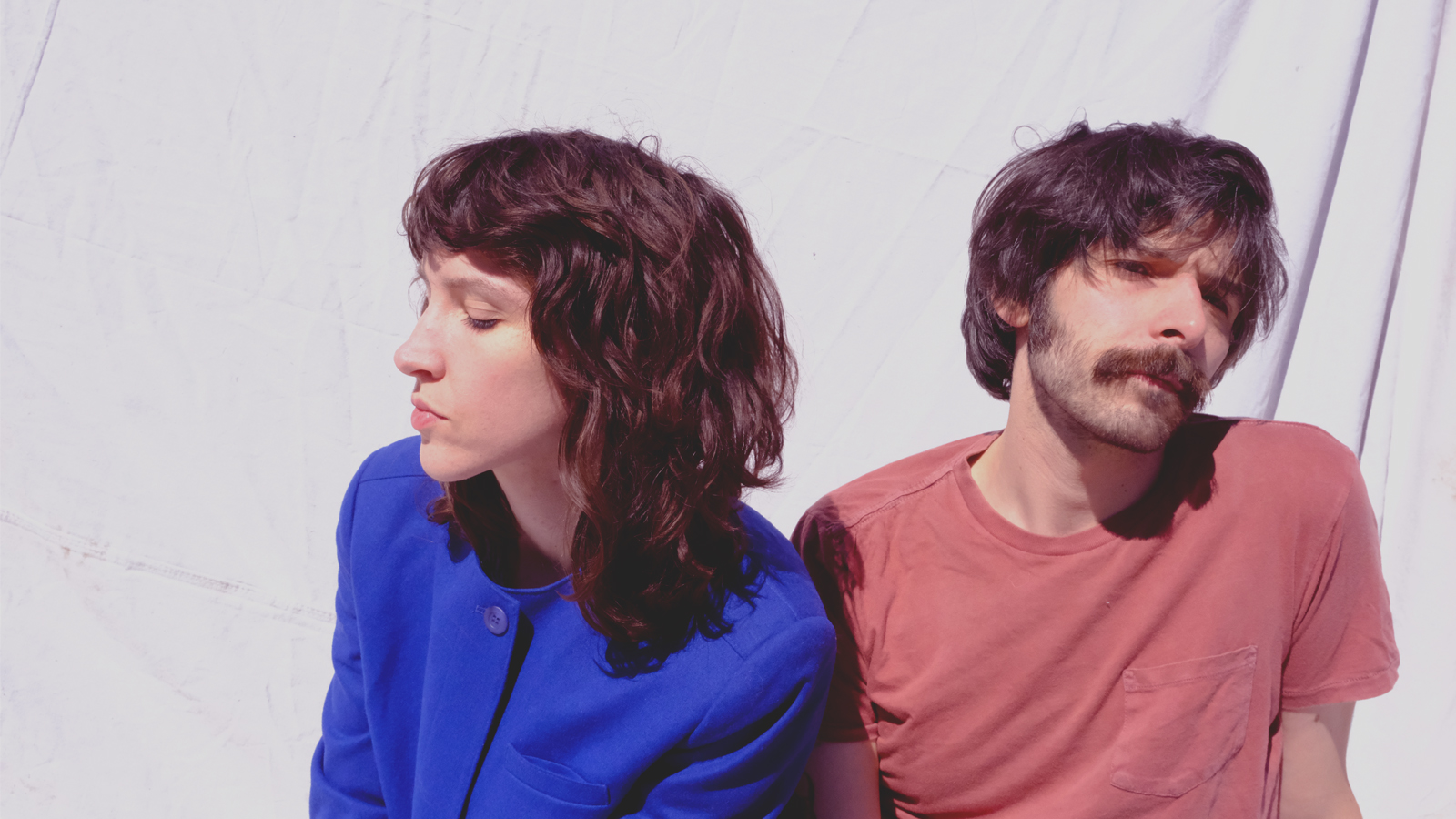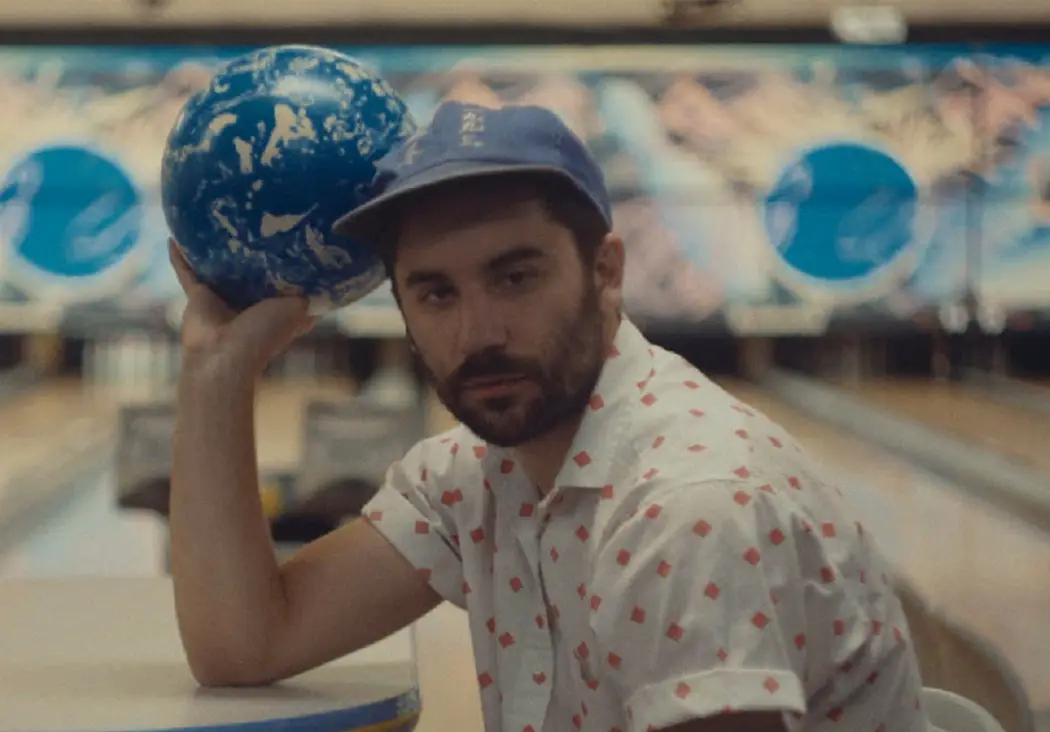In honor of Asian American and Pacific Islander (AAPI) Heritage Month, Atwood Magazine invited AAPI artists and music industry representatives from around the world to participate in an interview series reflecting on identity, music, culture, inclusion, and more. Throughout the month of May, Atwood Magazine will be continuing those conversations in celebration of AAPI Heritage Month, engaging with artists and publicists alike to discuss the roles of heritage and representation in their own art, the state of the music industry, and its role in promoting diversity, visibility, equality, and more.
– Mitch Mosk, Editor-in-Chief
•• •• •• ••
Today, Atwood Magazine speaks with Kim Valderas, Senior Director of Artist Relations at Motown Records. A proud Filipino-American from New Jersey, Kim has worked with a diverse range of artists and teams – from Halsey, Lil Yachty, Migos, and City Girls, to Lil Baby, Tiana Major9, SuperM, NCT 127, Marshmello, Alesso, and more. She began her career as an intern for EMI’s tour marketing department in 2012, and is now in charge of managing her artists’ day to day schedules – which involves everything from tour routings and listening sessions, to SNL, the Victoria’s Secret Fashion Show, and beyond.
•• ••
A CONVERSATION WITH KIM VALDERAS

Atwood Magazine: Can you talk to me a little bit about your heritage and your background?
Kim Valderas: So my parents… I’m a first generation born in America. My parents came here to America, to New Jersey specifically from the Philippines so I’m a Pacific Islander Asian-American. For me growing up, it was definitely like weird and I didn’t really understand it obviously ’cause I was a kid like the neighborhood that we grew up in was very Caucasian-based like I was the only Asian. But as a kid, you don’t really notice these things, right? Yeah, you notice people look different from you but you didn’t really notice like… There weren’t that many Latinas, there weren’t that many African-Americans. I had maybe one Latina person in my class who ended up being one of my closest friends growing up. It’s like I feel like the people that are different just tend to draw to each other so we grow up being best friends. We’re still good friends today. But yeah, I grew up in a very… I was the only Asian. [chuckle] But it’s cool though.
How has your relationship with your heritage changed as you've grown up?
Kim Valderas: It’s funny ’cause growing up, my parents being… ‘Cause they were the first ones to move here, I grew up always eating Filipino food. It was like rice, chicken, like a curry adobo type thing, that’s all I ate. So when I got to school and stuff, I always was like I want pizza, I want French fries, I really want the Americanized food. And when we would go out to eat, I would always want the American food. I wouldn’t want Filipino food. And growing up, I feel like I didn’t really appreciate growing… Really, my parents gave me the Filipino culture, they really… They try to ignite it in me but I was trying to Americanized myself, which looking back, I kinda like, “Oh, I can’t believe I did that.” I wish I really embraced who I was. Growing up now, I completely embrace my culture, like I said, I try to make the Filipino adobo at home a lot, and I’ll take pictures and send to my dad. I miss eating rice all the time like I was…
By like at 17, I was so sick of eating rice but now I’m like, I miss it all the time. So I’m definitely trying to get back to my culture more so growing up like I understood… My parents would also talk to me in Tagalog, that’s the native language in the Philippines, and I understand them completely. But the difference is my younger sister, who’s five years apart, she didn’t really get that kind of culture and she doesn’t understand it at all so that’s also an interesting thing between the age gaps, growing up as a kid, being a Filipino Asian-American.
I would love to dive a little bit deeper into your experience with your own Filipino heritage. Would you mind sharing some things about your Filipino culture that perhaps you don't feel are common knowledge, especially to colleagues and friends?
Kim Valderas: One of the things that I remember growing up… It’s kind of sad, ’cause growing up as a kid, I feel like we did more of the Filipino cultures, especially for holidays. They are really highlighted during the holidays. It’s like we have a feast and there’s a roast pig on the table, and there’s a full spread of these… We call it pancit, noodles, it’s like the holidays are really like how I feel close to the Philippines and our heritage, because we have the food, we have all the decorations. I feel like now I don’t experience that as much.
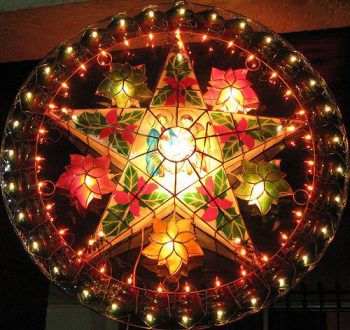
Not just because I’m not home, but as I grew older and as my sister grew older, my dad was like, “You’re old enough now, you guys are doing your own thing. It’s fine.” But me, during Christmas, we would hang up all these lights and one of them was like these stars outside our house. If you drove by our house and you saw these Filipino stars, you knew that they were Filipino. It was really cool seeing that. And then I really miss the full spreads we would have at Christmas. There would always be a roast pig. I don’t know if that sounds good to you, but every time I see this full roasted pig on the table, I’m definitely not vegetarian, that was like, “This is the Filipino meal.”
Disney actually did a short film on those stars, I think during COVID, and it’s actually on Disney+. Watching it made me cry because it’s about a relationship between a little Filipino girl and her nana, her grandmother. And they talk about the stars and how they would make them like Christmas, and as she grew older, she was not doing them anymore. It was really sad. I was like, “That’s me.”
Did you have a lot of music in your home?
Kim Valderas: My grandpa loved to listen to the Beatles which once I landed a gig at Capitol, he was like, “Wait, you know the Beatles were there.” I’m like, “Yes, yes, Lolo.” That’s what I call him, that’s grandpa. The Beatles worked there, and then also my dad was a big Rod Stewart fan, so I grew up with the classics, Eagles, Rod Stewart, the Beatles… As a kid though, I was more so like… This is kind of embarrassing, but I was into Lincoln Park, Red Hot Chili Peppers… Like also growing up in Jersey, I was into the emo stuff, so Mayday Parade, Brand New… I was definitely like what they call a scene kid.
Did you always know you wanted to go into music? How did that passion become a job?
Kim Valderas: So I loved music, I already… I always knew that. I always wanted to go to shows and stuff. My dad didn’t really allow me to go to shows until I was 17 ’cause he didn’t… He don’t wanna… He worried about I get lost in the crowd type thing, he was very over-protective. So I always like watching the award shows, MTV award shows. I was like, “Oh, I wonder what it’s like to be there and be working behind the scenes and what it’s like.” And I used to watch the Lincoln Park Road series that they have where it’s like, “Oh, being a tour manager on the road, that would be so awesome.” So that was already in my head when I was about 15 and onwards, but when I went to college, my dad… His idea for me and my sister was like, “You’re gonna be a doctor, Kim and your sister is gonna be a lawyer.” It’s like that stereotypical Asian parents, they want their kids to succeed, right? Especially ’cause he’s first generation.
So he really worked hard to put us through college and he wanted us to be successful out of college. So I went into school, I went to Pace University in Manhattan, went into pre-med so I was a pre-med for the first quarter or two. And then I was like, I don’t wanna do this. I’m living in New York, I’m studying, doing calc, I was like, “This is not fun.” And all my friends are partying so I didn’t tell him, but I think it was the first quarter or the second quarter, I switched majors and I switched into business with a focus in ad and promotion. And I didn’t tell him, and he found out when he got my report card type thing or whatever they sent out in college, I forget, it was like an update report card of some sort.
And he’s like, “Where are all your science classes?” I was like, “About that, I switched my major.” And he was so upset so that took a time for him to get used to, but I felt like I needed to prove myself and make it better so I started applying for internships in music. The first gig I landed was e-commerce at Atlantic Records in New York. So I was handling their e-commerce web stores for Bruno Mars at the time, Wiz Khalifa, Circa Survive, and I loved it. I was editing their images with all the merch stuff on their websites, that was very new for me but once he got that… Once he saw I was working somewhere, Dad was like, “Okay, if she hustled to figure it out and get this internship, I think she’ll be okay.” That’s how I got into music.
That sounds like he was very supportive.
Kim Valderas: Yeah. It took a second but we got here. [chuckle]
How did you get to where you are today, and what are you doing now?
Kim Valderas: So after Atlanta, I was there, they asked me to come back, so the first quarter I was there, and then they asked me to come back for a second quarter, so I was pretty much there for the year. And then after that, I started applying at other internships and there was this one cool one I saw, where it was “Touring and Events” and I saw it online, and I was like, “Oh wait, this is what I want”. And when I applied for it, I think within a week or two, I got an interview, went in, it was for EMI Capitol, like Capitol was formally known as EMI at the time.
And I met with two people, they ended up hiring me. And then at that point, it was like I was diving right in. It was like I was working guest lists, doing ticket holds, working events and helping the managers at the time. And then through that, I developed a really great relationship with my boss, my former boss, Matt Shelton, he was the head of the Touring and Events Department at the time at EMI. Till this day, he’s my mentor, he doesn’t work with Capitol anymore, but he’s like… I call him Uncle Shells now, like he’s family, but he pretty much got me to where I am today.
So, I got the internship and then I think I was there for over a year, and then it came to graduation. I think the day before I graduated, this is when EMI was transcending Capitol, and everyone is flying out to LA and moving to LA. And the day before I graduated, he called me into the office ’cause he was visiting New York, ’cause he had moved. He was like, “Hey, do you want a job? We love you, we wanna keep you on full-time, the only catch is, you have to move to LA”, and I was like, “I definitely want this”, right before graduation… I’m like, “I’m taking this offer”. He’s like, “You have time to think about it”, I’m like, “No, I’m gonna accept it, but let me call my dad real quick.” [laughter]
So I called my dad, he’s like, he was at this point, he’s super happy. He’s like, “We’ll move you out of your Brooklyn apartment this weekend”, ’cause Shelton said I had to be in the office by the following Monday, and my graduation was on the Wednesday. So I accepted, moved myself out of my Brooklyn apartment on that weekend, packed this big suitcase and moved. I think I flew out Sunday or Saturday or something like that, and then I was in the office by Monday.
Now, I pretty much am still in that department, it’s changed, it’s now known as Artist Relations Art and Development Focus. So I climbed, I was an intern, hired as a coordinator, I pretty much… I’ve been here for eight years now, which is amazing. Developed relationships with managers, artists. So what I do is I handle budgets, touring schedules, promo schedules, I book travel, I pretty much my job is to coordinate with all departments with certain requests that they want the artists to do, and I work with managers on approving that, making sure they’re aware of what the artist is doing. And every time there is a program… If I have to be on site with the artist, I’m usually there, moving him or her around. So pre-COVID, I was travelling a lot. You can ask anyone at Capitol, I was pretty much barely in the office [chuckle] and I really miss it. I think before COVID, I was like, “Oh, I really need a break, thank God, please send me home”, and then two months later, my boss, my former boss Esther, she was like, “Hey Kim”, we were in a department meeting, she was like, “Hey Kim, remember when you said you really wanted to go home?” and I’m like, “Yeah, I’m eating my words now, I regret it.” [laughter]
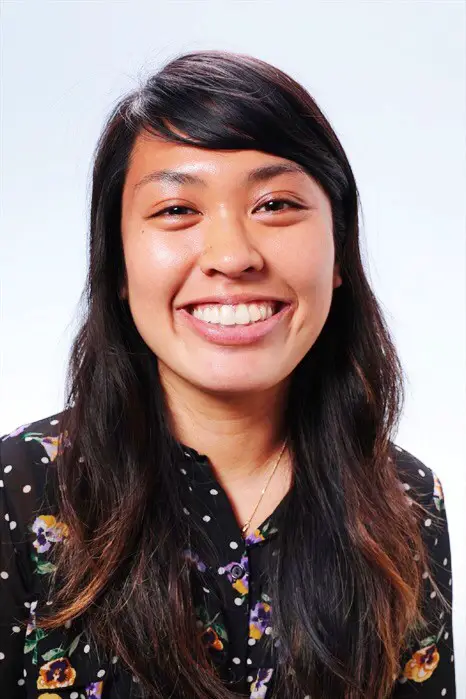
How do you experience the relationship between your Pacific Islander heritage and music?
Kim Valderas: When I was a coordinator, I felt it more – not so much now, ’cause there’s so much diversity in the company. Being an Asian and being a woman in the touring world, I feel like that the touring world is predominantly male. So when I first started off, I’m like, “I’m Asian, I’m a woman, I need to work harder to prove myself”, right? I’m communicating with tour managers who have been on the road and working on budgets for years. And I’m a coordinator starting off, trying to tell them they need to cut their budgets. So it was definitely a thing where it’s like, being Asian and being a woman, it was hard, but at the same time, I think I hustled through it to prove myself to them that like, “No, this is what you have to do”. So definitely it took a second and I feel like most of the… It’s… How do I put this into words? I feel like it’s an obstacle for Asians and women together, have to face when working in a world where it’s predominantly men.
Does the presence of other people who look like you and share your heritage impact your experience with music?
Kim Valderas: I feel like there’s more of a connection. It’s more like you can relate to them, and you’re able to talk to them. I don’t wanna say you “feel more safe,” but I feel like there’s a different energy where we’re connected.
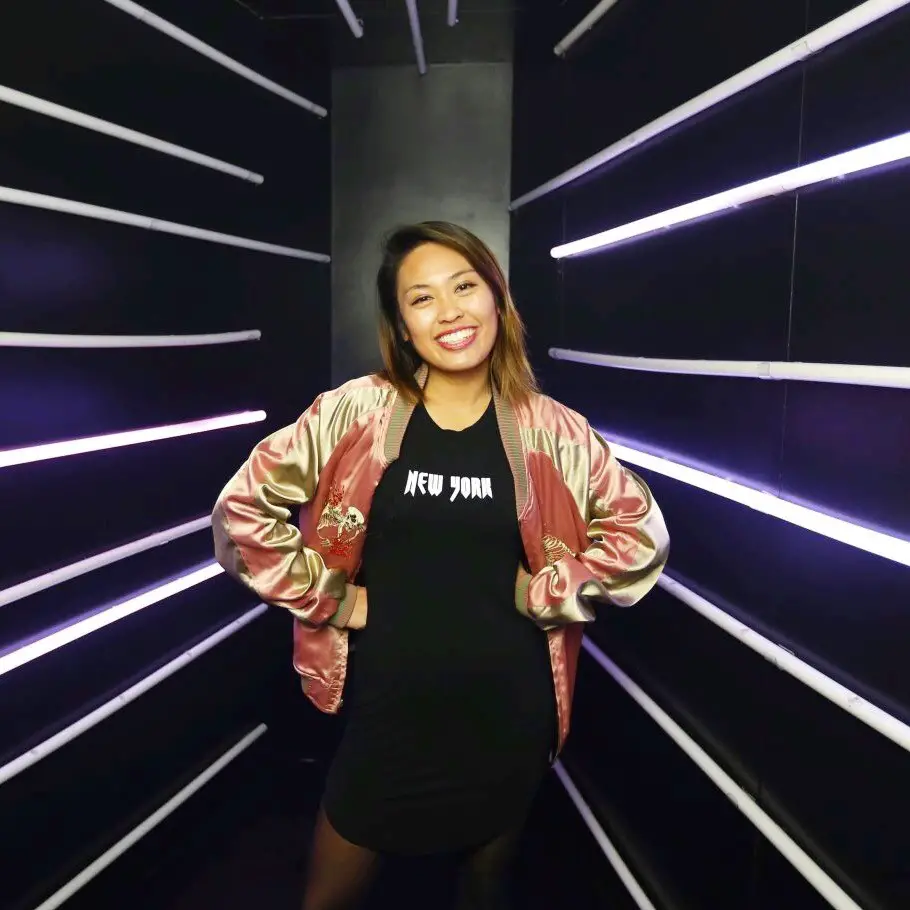
Are there any people specifically for whom you've felt that way?
Kim Valderas: There is this one group that we have… So we’re diving into the K-Pop world. I work with this artist called SuperM, K-pop Band, and I raised my hand, obviously to work on this project, ’cause I wanted to dive into the K-pop world. But I thought it would be interesting ’cause this is an Asian artist and I’m Asian. I hate to say it, I was like, “This would be awesome for me to work.” And I obviously got them and it was… Working with them, and I love this team, I love the SM Entertainment team there. It was just easy. Yeah, it was a lot of hard work and it was a lot of time given, but I don’t know if it’s just ’cause I really wanted to do it or it’s because there was that relationship there. It was just… There was a lot of just positive energy that I wanted to help fellow Asians succeed in the music industry world.
I think that's wonderful that you're able to feel that connection at work. Outside of work, can you give me some examples of Asian-American or Pacific Islander artists who've had a significant impact on you, and why they've had that impact?
Kim Valderas: There was this artist, Jolina Magdangal, I might be butchering her name, from the Philippines that I grew up listening to, just because my mom and my nana would play her. And I was asked in elementary school, what’s your favorite artist? And I said this artist, and no one knew who I was talking about. But she’s a Filipino singer, she’s really well known in the Philippines. For some reason… Growing up, I definitely idolized her. She was like the Christina Aguilera type vibe. It’s like once people were in a slight way judging me for not knowing this artist, I moved to the Christina Aguilera and Britneys of the world. But that was definitely an artist that I looked up to from the Filipino culture.
How do you feel the music industry can improve when it comes to representation, inclusion and diversity?
Kim Valderas: I think they’re working on it now, and I think it’s great. They’re really highlighting, at least Capitol and Motown, they’re definitely highlighting their Asian employees. And I think it’s great, ‘cause I’ve been working in the industry for eight years now, and this is the first time I’m seeing them highlight Asian-Americans. I think it’s awesome that they’re highlighting what they’re doing, how they are vital to the company, and it’s so important because it’s also uplifting to us knowing that… I know that we’re appreciated for what we do, but it’s different being spotlighted. So I think it’s awesome.
I know that we’re appreciated for what we do, but it’s different being spotlighted.
That's wonderful. We talked about a couple of the artists you work with, is there anything that you're working on currently that you're really excited to share that you'd love to highlight?
Kim Valderas: So TheHxliday just released his EP. City Girls are releasing something special, and then Migos’ Culture III is coming soon too.
Thank you so much for your time, I really appreciate it.
Kim Valderas: Thank you so much!
— — — —

Connect to Atwood Magazine on
Facebook, Twitter, Instagram
Discover new music on Atwood Magazine
? © Atwood Magazine
:: Celebrating AAPI Heritage ::
 follow our AAPI Heritage Month playlist on Spotify
follow our AAPI Heritage Month playlist on Spotify 

